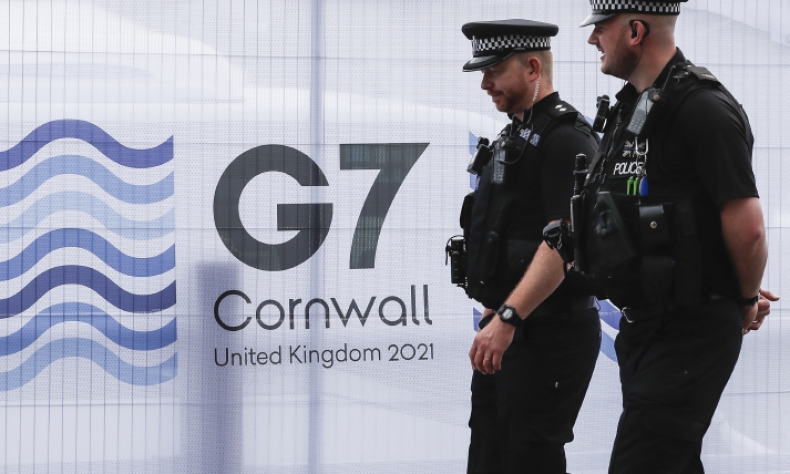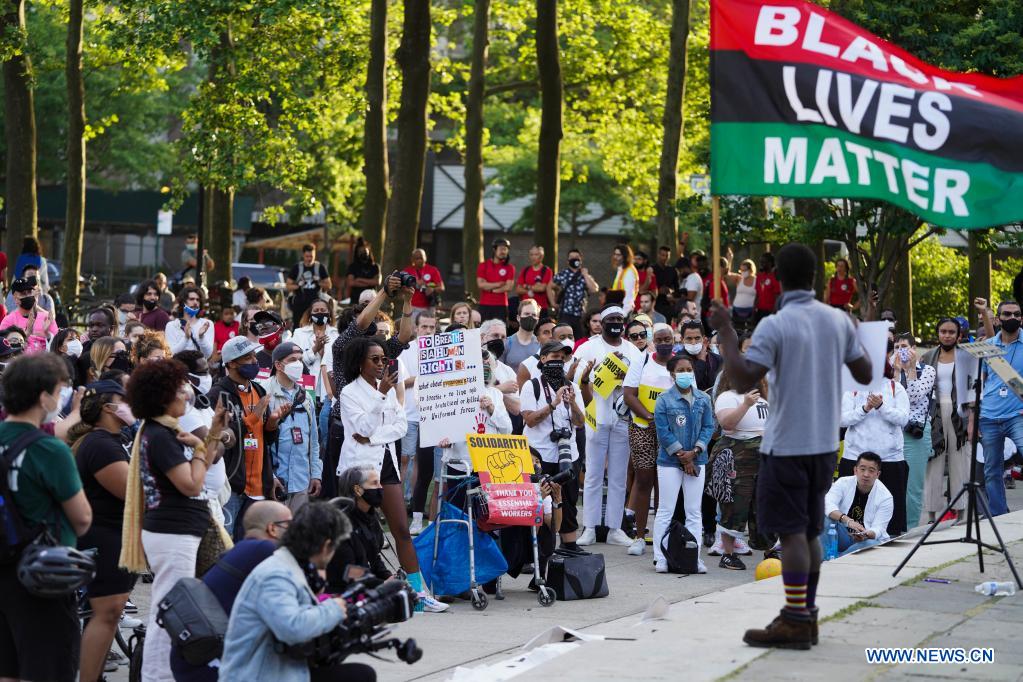B3W: America’s ‘Make the World Great Again’ Fantasy

Whatever B3W accomplishes, it’s unlikely to contribute significantly to America’s new containment strategy, and unlikely to help those it claims it will save.
The recent Group of Seven (G7) leaders’ meeting in the UK announced support for a new U.S.-led effort called Build Back Better World (B3W), a global infrastructure plan to challenge China’s Belt and Road Initiative. While details remain vague and support within the G7 tepid at best, this announcement has caused a big splash in global discussions, particularly its offer “to help narrow the $40+ trillion infrastructure need in the developing world.”
Political contexts
After former U.S. President Donald Trump’s obsessive fixation on China, in which the Chinese Government figured increasingly as the villain in his “Make America Great Again” fantasyland, there was hope President Joe Biden would find a way to reverse course. Because Trump poisoned American opinion on China to such incredible levels, including resorting to Cold War hyperboles to hype a non-existent China threat, it was always going to be difficult for Biden to pick up the pieces and move forward in pragmatic and constructive ways.
Indeed, many expected him to pander to China hawks in Congress to sweeten support for his domestic agenda, and likewise to protect his political flank in public discourse should Trump, former Secretary of State Mike Pompeo or his own generals criticize him for being soft on China. Nevertheless, many expected him to find a way to stabilize the relationship, unwind the trade war, and find a new normal with a soft-reset in relations. That hope is flickering now; perhaps it was always far-fetched.
In fact, the U.S. has pursued successive, escalating containment strategies against China since at least 1999, each one failing, and by all indications, now it’s Biden’s turn to do the same. American leaders, many American voters and even some American allies appear unable to envision a world where the U.S. is not the sole superpower, and doing whatever possible to ensure American power remains supreme, as U.S. Senate Majority Leader Chuck Schumer described the purpose of a new China-targeted legislation ahead of the G7 summit.
And yet, few of America’s friends in the G7 seemed truly enthusiastic about the proposal. Japan is treading carefully. France asked why not reform the existing global system, making it more equitable? Germany and Italy are hesitating: Despite not always agreeing with Beijing on a number of issues, both countries also have resisted American efforts to target China. Plus, Berlin will see new leadership in September, possibly Greens, who are even less likely to support this kind of project.
One gets the sense that after years of being browbeaten by Trump, after still being pushed to reconfigure NATO as an anti-China alliance, European capitals are increasingly exhausted by yet another American containment strategy that few believe is necessary or desirable, let alone affordable.
Keep in mind, Europe has its own troubles, including recovering from COVID-19 and Brexit, and the threat of more internal fracturing. In fact, while the B3W proposal received a lot of press coverage around the world, the escalating vitriol between the EU and the UK given continued fallout associated with Brexit dominated European reporting on the meeting.
In fact, not all is rosy for Biden at home either. As he prepared to leave for the meeting he was already facing a stalled domestic agenda in Congress over his massive U.S. infrastructure schemes. If Biden can’t get Congressional support to help America rebuild itself, what chance does he have to get the same for developing countries?
The U.S. is facing several mounting crises. Its political polarization remains extreme. Democratic leaders are lambasting their Republican counterparts for reestablishing Jim Crow Era voting restrictions that enable and enforce segregation. Americans are exhausted after a year of death and disability; the young are especially vulnerable to depression. Gun-related violence remains unchecked, and proposals for reasonable gun controls have been met in some states with the opposite—the right to carry concealed weapons without training, registration and substantive background checks.

There are other problems as well. As UN Secretary General António Guterres said on the eve of the G7 meeting, “We are coming to a point of no return” on efforts to reverse climate change. He noted G7 countries have committed $189 billion to support fossil fuels and those who use them, while directing only $40 billion toward renewable energy. Despite Biden’s bluster on climate change, despite the same in Europe, is there in fact a sincere effort underway to treat that problem or is that similarly window-dressing before the apocalypse?
It is not unreasonable to conclude that Biden’s honeymoon is over at home, and despite European relief with Trump’s defeat, one gets the sense that Biden’s efforts to drive a wedge between Europe and China will come back to haunt him. To be sure, Biden’s carrot remains preferable to Trump’s stick, but it doesn’t take long to get sick of carrots too.
B3W’s objectives
If this is a sincere attempt to help poor countries after centuries of imperialism and hegemony, then what a marvelous about-face. If the G7 truly wants to compete with China to help others, then maybe that’s good for the developing world—especially if B3W dovetails with efforts to address climate change and other existential crises. One might even go so far as to suggest that the world should thank China for essentially pushing the G7 to be less exploitative and more humane.
However, if this is really just an effort to build an anti-China bloc, and its human costs will outweigh its benefits—and this is a real possibility here—then we are headed to an ever-darkening future. In fact, it’s impossible to truly assess this plan because there’s little beyond a few vague talking points to consider at this point. But it seems clear that even if it’s more than just propaganda, it’s designed to complement Biden’s China containment strategy and reinforce American global hegemony, including the position of the U.S. dollar as the world’s supranational currency.
That’s ironic. The proposal as discussed so far has emphasized its democratic character and that of the G7 nations. But how can one describe American unilateralism paired with G7 elitism as a democratic solution to problems that are intrinsically linked to their own histories as imperial powers, the legacies of which continue to bedevil the developing world in many ways.
The proposal is also being presented in Western media as an alternative to the Belt and Road Initiative’s alleged strategy of creating “debt traps” to gain political and economic control over others. And yet, study after study by leading scholars in the U.S. and the UK have debunked this myth, as have academic studies of China’s broader development efforts in Africa, Asia and Latin America.
The miracles of Saint Joe?
Biden has made three bold promises, each one more incredible than the last, each one requiring a miracle. First, he promises to outcompete and contain China. Second, he’s going to save America from itself. And third, he’s going to save the world by solving centuries of underdevelopment and reversing global warming—two problems for which the G7 shares outsized historical responsibilities.
Keep in mind the White House can barely manage internal affairs in the U.S., and that it is struggling to discipline even its closest allies in Europe and Asia. Therefore, it’s unlikely any of these efforts will produce the outcomes Washington desires. Furthermore, while the U.S. has done a powerful job propagating anti-China narratives in the past few years, global opinion polls indicate most in the world distrust and fear Washington more than Beijing. Consequently, whatever B3W accomplishes, it’s unlikely to contribute significantly to America’s new containment strategy, and unlikely to help those it claims it will save.
Josef Gregory Mahoney is professor of politics at East China Normal University in Shanghai.
 Facebook
Facebook
 Twitter
Twitter
 Linkedin
Linkedin
 Google +
Google +










